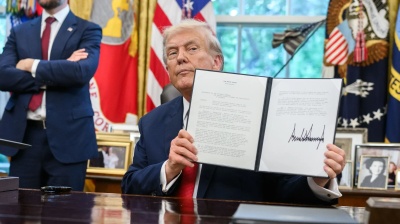Guyanese voters head to the polls on September 1 in a high-stakes general election that will determine whether President Irfaan Ali's People's Progressive Party/Civic (PPP/C) maintains its parliamentary majority amid the country's unprecedented oil-driven economic transformation and an escalating territorial dispute with Venezuela.
Ali's ruling party has centred its campaign on energy sector expansion, unveiling ambitious plans anchored by the Gas-to-Energy project, promising up to 50% reductions in electricity costs. The manifesto includes a second 300MW power plant at Wales and a ship-loading terminal for cooking gas exports to Caribbean Community markets.
Powered by ExxonMobil's offshore discoveries since 2015, Guyana has achieved five consecutive years of double-digit economic growth, including a staggering 43.6% expansion last year, Reuters noted. Oil production is projected to reach 1.3mn barrels per day by the end of 2027, with the International Monetary Fund listing GDP at nearly $26bn—almost five times its 2020 level.
But the oil windfall has attracted unwanted attention from neighbouring Venezuela, which has revived its historical claims to the Essequibo region, home to roughly 125,000 Guyanese and significant crude deposits. President Nicolas Maduro raised the stakes in May by staging elections for an Essequibo governorship within Venezuela's borders. Ali, who enjoys US backing, has responded forcefully to these provocations, taking the matter to the International Court of Justice.
Meanwhile, opposition parties argue that the infrastructure-heavy spending has failed to address everyday cost pressures or improve living standards for most citizens. "A lot of our oil money is being wasted on projects that aren't achieving their objectives," opposition leader Aubrey Norton told The Guardian. "A few people are getting rich, and the majority of the population is in poverty."
The soaring cost of living remains a central grievance, with market vendors reporting that basic commodities such as rice have seen prices double within two years. Speaking to AFP, legal scholar Neville Bissember from the University of Guyana pointed out the distinction between economic growth figures and genuine development, arguing that infrastructure projects must be balanced with investments in housing, power generation and healthcare to prevent Guyana from falling victim to the familiar trap of resource-rich nations that fail to prosper.
The PPP/C, which secured 33 of 65 National Assembly seats in 2020, remains favoured due to strong support among Indo-Guyanese voters and opposition fragmentation. A recent WIC News poll suggests 60% voter support for the ruling party among over 200 respondents. Adding unpredictability to the race is mining magnate Azruddin Mohamed, who has entered as an independent challenger despite facing US sanctions for alleged corruption, gold smuggling and tax violations.
If the ruling party is unable to secure a comfortable victory as projected, the country's hydrocarbons future may head down a notably different path. Three opposition parties have pledged to renegotiate Guyana's ExxonMobil contract for larger revenue shares, potentially altering the country's energy trajectory. The 2020 election was marred by a five-month vote-counting standoff, though the elections commission has promised results by September 3 this time, Reuters confirmed.
This election represents a crucial test of whether Guyana's oil wealth can translate into broader prosperity or remain concentrated among elites, with public sentiment on the hydrocarbons sector – and the government's handling of the Essequibo dispute with Venezuela – expected to have significant implications for the election outcome.
News

Taiwan’s KMT elects new leader
Cheng Li-wun, the only female contender among six candidates, defeated former Taipei mayor Hau Lung‑bin by a wide margin, winning over 50% of the ballot in the leadership race for Taiwan’s opposition Kuomintang on October 18.

Gold price in Sri Lanka plunges
The sudden drop of around LKR20,000 in both 22- and 24-carat sovereigns adds to a volatile recent run for precious-metals pricing in the island nation: only days earlier, gold prices were noted to be climbing.

Mongolia’s PM ousted as party infighting topples government
Right to challenge sacking means battle may not be over. Observer says confrontation is linked to desire for control of country’s vast coal resources.

Ex-chairman of Istanbul-listed Sisecam hit with travel ban in Can Holding investigation
Company is controlled by "Ataturk" bank Isbank, which has previously been in the crosshairs of Turkish president Erdogan.




